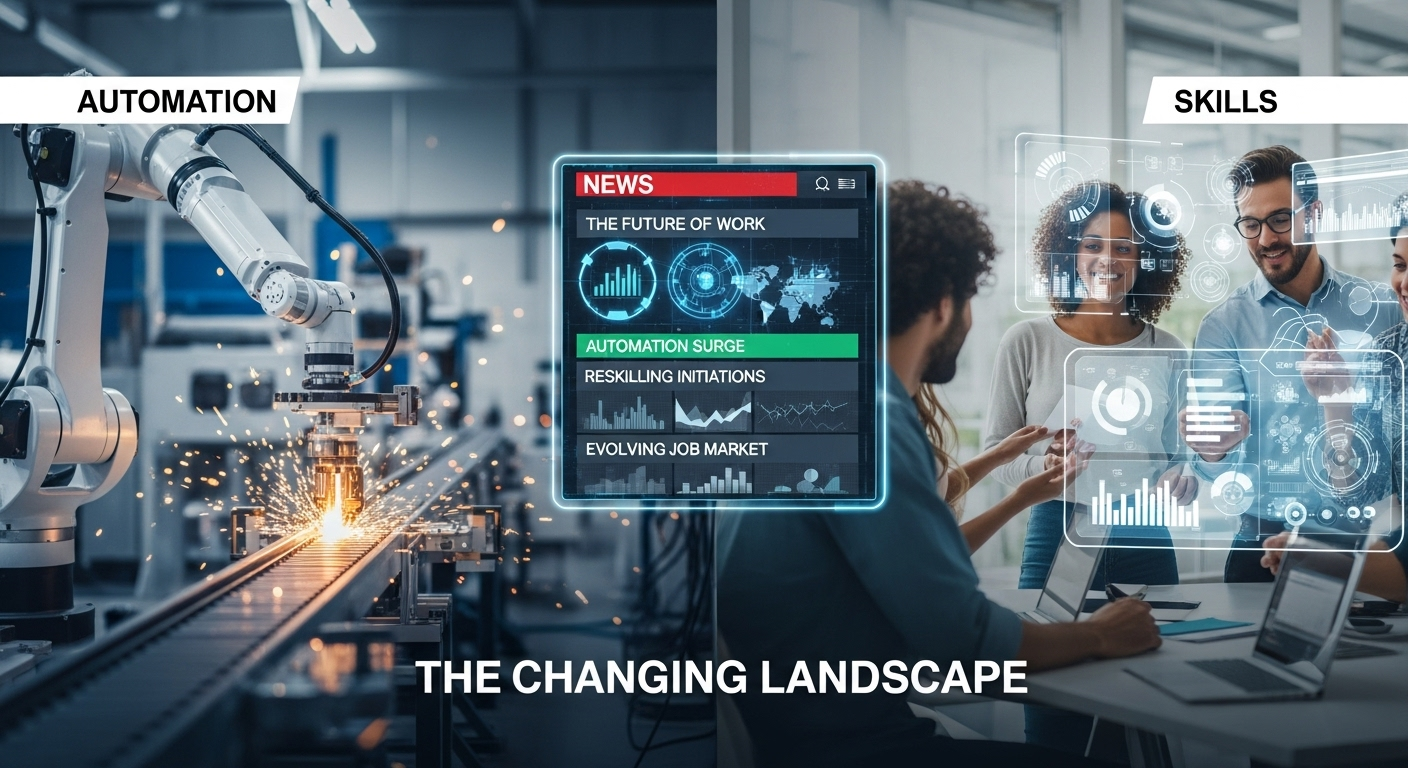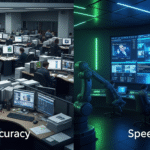Okay, let’s talk about the future. But not the flying-cars-and-robot-butlers future. More like the “how am I going to make a living in five years?” future. Because honestly, that’s the one that’s keeping me up at night. I mean, are we all going to be replaced by algorithms? Probably not entirely. But the landscape is definitely shifting. And the big buzzwords? Automation, skills gaps, and a whole lot of uncertainty.
I initially thought automation was just about robots taking factory jobs. And yeah, that’s part of it. Analyzing geopolitical tensions helps understand the bigger picture, and how technology integrates into global strategies. But it’s seeping into everything now. White-collar jobs, creative roles… it’s kind of unnerving. I read an article the other day about AI writing marketing copy. Marketing copy! What’s next, AI writing novels? (Please, no.)
But here’s the thing: all this automation… it’s creating new opportunities too. Just not the ones we’re necessarily prepared for. We have to figure out how to adapt and gain more skills.
Upskilling for the Automated Age

So, what skills are going to be valuable in this brave new world? The obvious answer is tech skills. Coding, data analysis, AI management… but honestly, I’m terrible at all of that. And I suspect a lot of you are too. Does that mean we’re doomed? I don’t think so.
There’s a growing demand for “soft skills” too. Critical thinking, creativity, communication, emotional intelligence. The stuff robots can’t (yet) replicate. Because here’s the thing: even if a robot can write a marketing email, it can’t build a real relationship with a customer. And that’s where humans still have the edge. I worked in customer service for years, and let me tell you, empathy is something that you can’t automate. That said, if you’re looking to break into the tech world, Crazy Games can provide interesting new skills!
Think about it this way: The robots might do the grunt work, but we’ll be the ones figuring out what grunt work needs to be done, and how to best use the robots to do it. We will also need to solve complex issues that require more abstract thinking.
The Shifting Power Dynamics
One thing that’s not talked about enough is how this changing landscape will affect power dynamics. If a few companies control all the AI, do they also control the jobs? What happens to wealth inequality when a few people own all the robots? These are big questions, and I don’t have the answers. But we need to be asking them.
Consider the gig economy, too. It promised freedom and flexibility, and for some, it delivered. But for many, it’s just precarious work with no benefits. Will automation exacerbate this trend, creating a two-tiered workforce: a small elite of highly skilled workers, and a massive underclass of gig workers scrambling for scraps? I honestly hope not.
The Importance of Lifelong Learning
Okay, I know, it sounds cliché. But it’s true! The days of getting a degree and then coasting for 40 years are over. We all need to be constantly learning, adapting, and reinventing ourselves. The half-life of a skill is getting shorter and shorter.
But here’s something even more interesting: Learning doesn’t have to be painful! There are so many amazing resources out there. Online courses, workshops, conferences, even just reading books and articles. Find something you’re genuinely curious about, and dive in. You might be surprised at what you discover.
And don’t be afraid to experiment. Try new things. Fail. Learn from your mistakes. That’s how we grow.
Investing in Education and Training
This isn’t just an individual responsibility. Governments and businesses need to invest in education and training programs. We need to create pathways for people to acquire the skills they need to succeed in the automated age. And we need to make sure that these programs are accessible to everyone, regardless of their background or income.
Frankly, a lot of the current education system feels outdated. It’s still geared towards preparing people for jobs that don’t exist anymore. We need to rethink how we teach and learn, focusing on critical thinking, problem-solving, and creativity.
Also, marketing content creation requires ongoing adaptation to evolving algorithms and tech. This ties into the need for constant learning.
FAQ: The Future of Work in the Age of Automation
How do I know if my job is at risk of being automated?
Good question! A good starting point is to assess how much of your job involves repetitive tasks that could be easily programmed. If a significant portion of your daily activities falls into this category, it might be time to start thinking about upskilling. But don’t panic! Even highly automatable jobs often require human oversight, problem-solving, and communication skills. Focus on honing those areas, and you’ll make yourself much more valuable.
Why is everyone talking about skills gaps all of a sudden?
Because the skills that employers need are changing faster than the workforce can adapt! Technology is evolving at an exponential rate, and many people haven’t had the opportunity to acquire the new skills needed to thrive in today’s (and tomorrow’s) job market. This is why lifelong learning and accessible training programs are so critical.
What are the most important skills for The Future of Work: News on Automation, Skills, and the Changing Landscape?
Beyond the technical skills (coding, data analysis, AI management, etc.), focus on so-called “soft skills”: critical thinking, creativity, communication, collaboration, and emotional intelligence. These are the skills that robots can’t easily replicate, and they’ll be essential for navigating the complexities of the automated age. Also, adaptability and a willingness to learn new things will be crucial.
Isn’t automation just going to lead to mass unemployment?
That’s the big fear, isn’t it? And it’s a legitimate concern. However, history suggests that technological advancements create more jobs than they destroy, although that doesn’t necessarily mean that the transition is easy or painless. The key is to prepare the workforce for the new opportunities that will emerge. And to address inequality. We need to ensure that the benefits of automation are shared by everyone, not just a select few.
So, yeah, the future of work is uncertain. But it’s also exciting. If we embrace change, invest in ourselves, and demand a more equitable society, we can create a future where everyone has the opportunity to thrive. Or at least, that’s what I’m hoping for.



